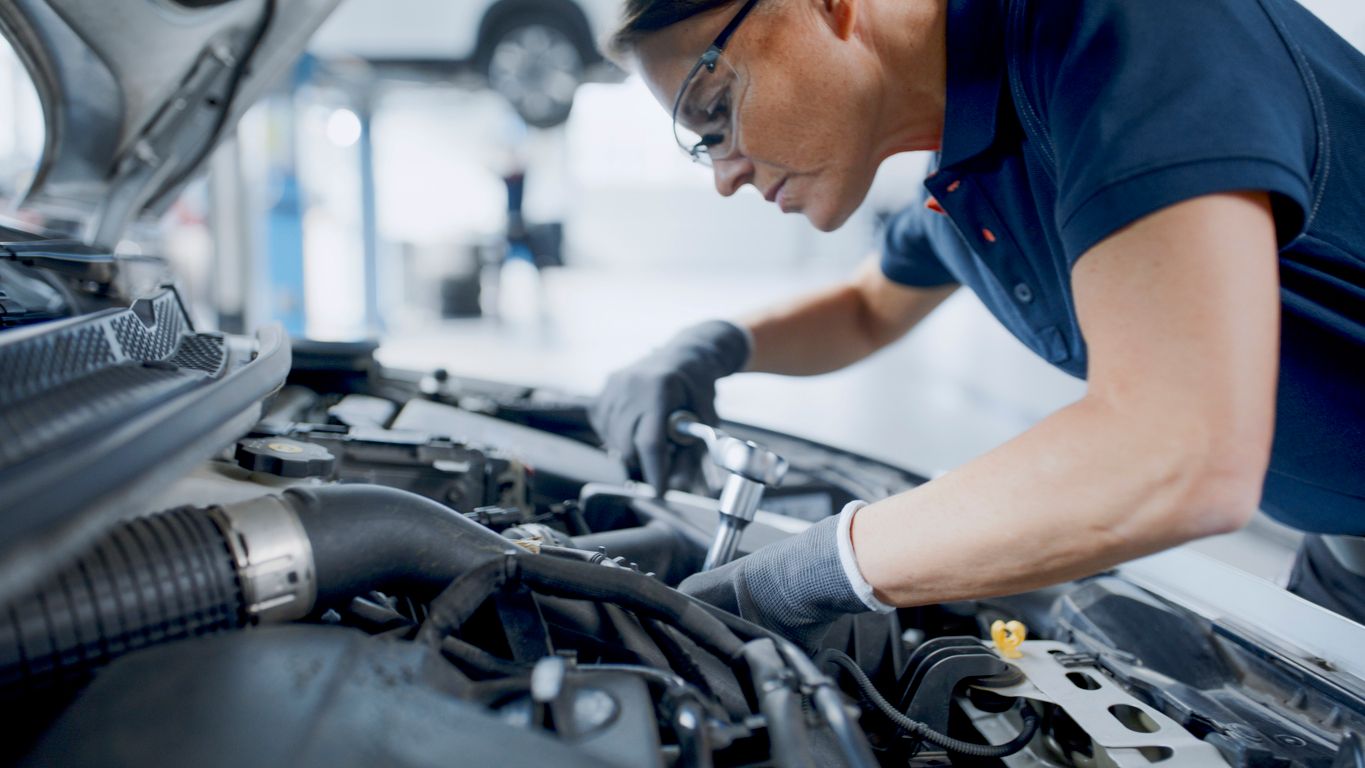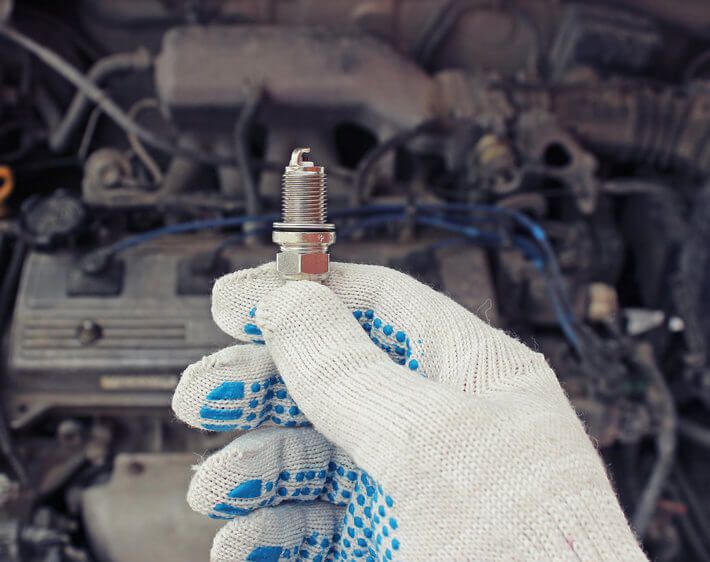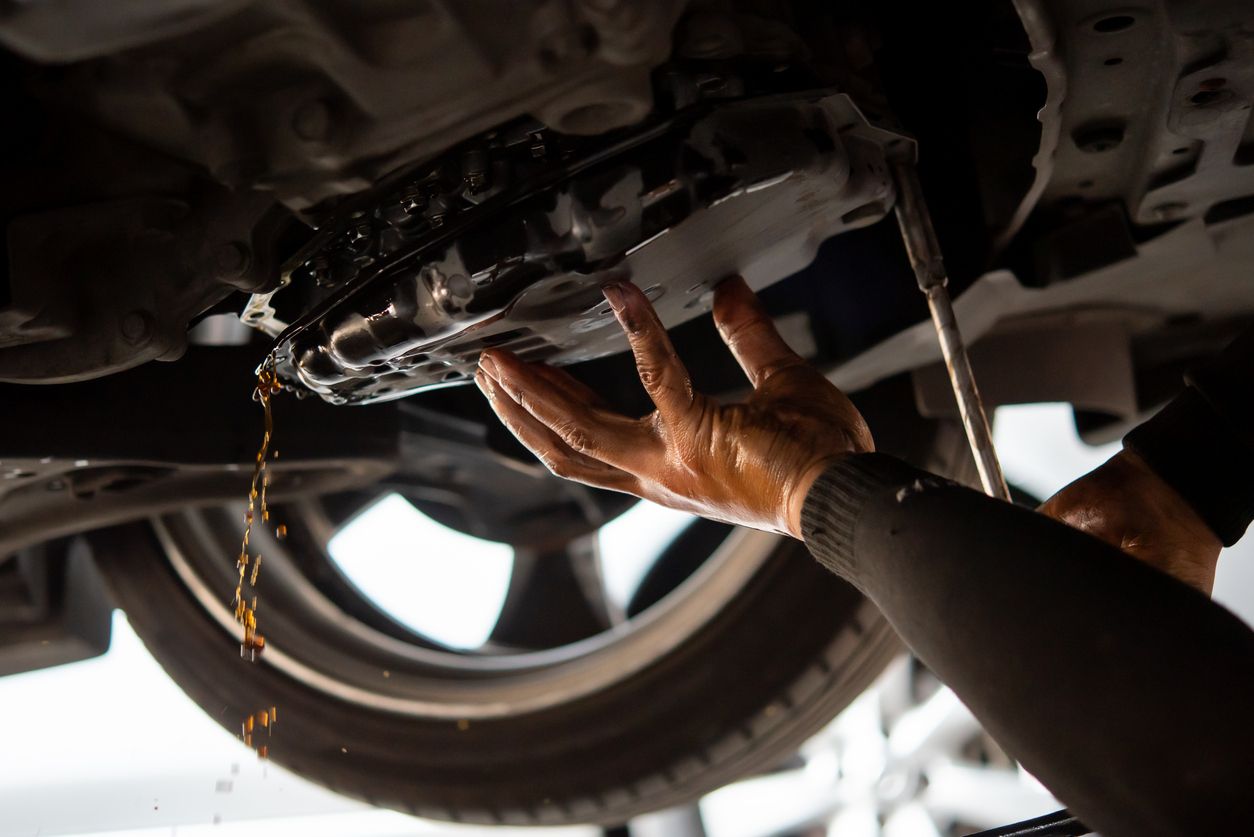It’s crucial for the fluids in your car to remain clean—especially the fuel. If your fuel gets dirty, it can lead to problems with your engine, which can turn into expensive repairs.
Regularly maintaining and replacing your fuel filter can help keep your vehicle performing its best and save you from potentially costly repairs. Read on to learn about fuel filters, including what they do, how often they should be replaced, and signs you might need a new one.
What is the Purpose of a Fuel Filter?
The gas at the pump is stored in underground tanks, where it can collect rust, particles, and other impurities. When you pump fuel into your vehicle, these impurities come right along with it. The fuel filter is responsible for removing contaminants from the gas before they can reach the fuel injection system—and your engine.
What Causes a Clogged Fuel Filter?
Like other filters in your vehicle, the fuel filter slowly begins to collect and hold onto the particles it removes from your gas over time. These particles eventually clog the filter, impacting its effectiveness. That’s why it’s important to regularly service and replace your fuel filter.
When to Change the Fuel Filter
The maintenance interval for a fuel filter varies depending on your make, model, and year. Some vehicles may need a replacement every 20,000 miles, while others can go 150,000 miles on the same fuel filter. If you have a newer vehicle, you may even have a lifetime fuel filter that doesn’t need routine maintenance and replacement.
Always check your manufacturer’s recommended maintenance schedule for details on your specific vehicle.
What Are the Symptoms of a Dirty Fuel Filter?
Several factors can affect the lifespan of your filter—like filter quality, vehicle age, and driving habits—so you may need to replace the filter sooner than expected. Clean vs. dirty fuel filters perform differently, and your vehicle will likely let you know when it’s struggling with a clogged filter.
Here are eight clogged fuel filter symptoms that could mean it’s time to schedule an appointment for a replacement.
1. Difficulty Starting Your Car
When you turn the ignition, the fuel pump sends fuel from the tank to the engine. If your fuel filter is clogged, it can restrict this flow and make it difficult for the engine to start. You may notice the engine cranking longer than usual before finally turning over.
2. Sluggish Acceleration
If your car struggles to accelerate, especially uphill or when carrying heavy loads, it could be a sign of a clogged filter. During acceleration, a dirty fuel filter can restrict gas flow, causing the engine to hesitate or stumble as it struggles to get the fuel needed for increased power and speed.
3. Rough Idling
Since a dirty filter can limit the amount of fuel reaching your engine, you may experience rough idling. Most vehicles have some level of vibration at a stop, but more intense vibrations or lurching when accelerating can indicate a clogged fuel filter.
4. Engine Stalling
If the fuel filter is severely clogged, the insufficient fuel supply may cause your engine to stall out completely. If your car is stalling frequently, especially at an idle, you should stop by your local Firestone Complete Auto Care to have the fuel filter checked.
5. Poor Gas Mileage
An engine running with a clogged fuel filter can burn more fuel than usual in an attempt to maintain performance. A clogged fuel filter is just one reason you might have low gas mileage, so it’s recommended you visit professionals for diagnostics.
6. Strong Gas Odors
In some cases, a clogged fuel filter can cause unburnt fuel to escape through the exhaust system, leaving your car's cabin smelling like gas.
A strong gas odor could also indicate other issues, like fuel leaks and fuel injector issues. The pros at Firestone Complete Auto Care can help find the root of and fix the issue, whether it’s the fuel filter or not.
7. Fuel Pump Noise
The fuel pump works to maintain proper pressure in the fuel lines. When the fuel filter is clogged, the pump has to work harder to push gas through. The extra effort can cause the pump to produce a strange noise that may be heard inside the vehicle.
8. Check Engine Light Comes On
As fuel struggles to flow through the clogged filter, it can cause low fuel pressure. This low fuel pressure may eventually trigger the check engine light. The technicians at Firestone Complete Auto Care have the necessary tools to read the diagnostic trouble code, find the problem, and fix it.
Don’t Let a Clogged Fuel Filter Hold You Back: Turn to Firestone Complete Auto Care
Maintaining a clean fuel filter is essential for your vehicle's health and performance. With friendly, knowledgeable technicians and quality parts, Firestone Complete Auto Care can quickly and effectively replace your fuel filter if needed. Stop by your nearest location for peace of mind and a smoother ride.



